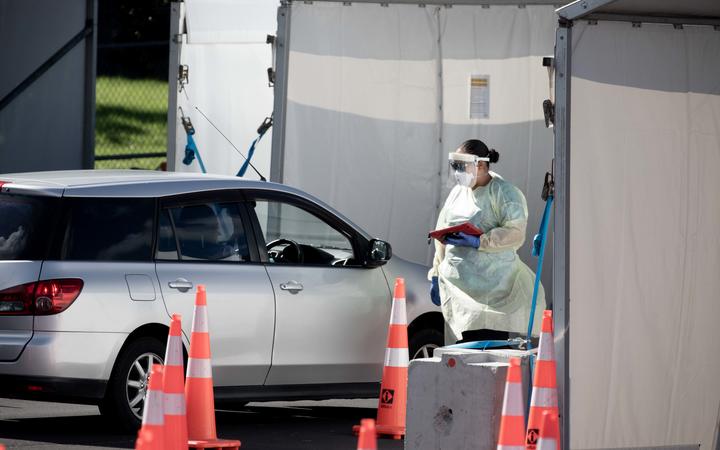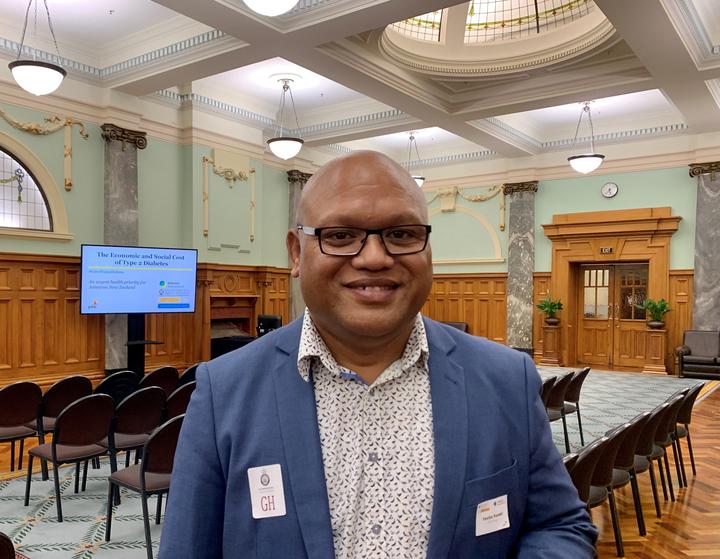By RNZ.co.nz and is republished with permission.
Frontline Pacific health care workers are on the clock from dawn to dusk responding to the need in their communities through the Covid outbreak.
Photo: RNZ/Marika Khabazi
Now a Pacific health leader is calling on the government to pump more funding into Pacific medical providers to help build the support they need to keep going.
The Fono’s Covid-19 welfare manager Europa Kupu said the pressure has been huge.
“We’re working still seven days a week and our front liners are working from morning to evening, just so we make sure we cover all of the referrals we are receiving because they come through the whole day for urgent support. So it is hectic, it is crazy times but at the same time we are kinda used to it.”
Throughout the outbreak Pacific health providers have been there to help.
The Fono chief executive Tevita Funaki said Pacific peoples are facing ‘chronic challenges’ and the government needs to commit to addressing them.
“The key here is actually building the pipeline for Pacific into health careers, no doubt that the pool of Pacific staff available is limited, we need to look at a whole development strategy workforce for Pacific, not just a band aid solution.”
There is a hefty price tag, but Funaki said inequities need to be addressed imminently.
“In particular around the Auckland providers. We are looking at a total investment of around over 200 million into core capabilities, including infrastructure support and also investment into the workforce.”
He said the Pacific healthcare workforce alone needs to be increased by half among other urgent changes.
Housing is a clear problem too, and when you have Covid-19 you stay home to stop the spread, a task easier for some than others, Funaki said.
“Because of the overcrowded homes, the economic well-being of Pacific around career, pathway and education – and then looking at the health reform to focus at the inequities when you look at chronic illnesses, Pacific are highly represented there.”

The Fono chief executive Tevita Funaki said inequities need to be addressed urgently. Photo: Dominic Godfrey / RNZ Pacific
It is issues like these that push Pasifika into the “vulnerable” category when it comes to Covid-19.
These inequities have been highlighted before – but Funaki said the government simply cannot look away.
At the height of the Omicron surge in Auckland, Pasifika made up 60 percent of hospitalisations and 50 percent of cases.
“There is no doubt in terms of the significant cases in terms of the Omicron outbreak in comparison to Delta. Even when we are looking from last Friday there were 70,000 infections from what was last year to now. Those are significant numbers and part of that is around the impact of the infectiousness of Omicron.”
But a front line worker in Auckland believes that number is even higher.
“We’re probably just scraping the surface, families that we never engage with as a provider, we’re finding more coming through as new families that we haven’t dealt with before. They are not knowing how they can reach out and who they can turn to,” they said.
Auckland District Health Board recorded 3342 positive Covid cases among its Pacific population, for the week ending on the 27 March, a drop from more than 10,000 two weeks prior.
Covid-19 modeller Michael Plank said it looks like the outbreak has passed through the Pacific population earlier than other groups when looking at case numbers.
But he said Covid-19 is here to stay.
“In the short term relatively high levels of immunity means that cases are coming down but unfortunately that protection that you get from prior infection is likely to be relatively short-lived and so over time that immunity will wane. So the Pacific community and other communities in New Zealand will gradually become susceptible to a second wave over time.”
He wants all community members to keep up mask wearing in the short term and tackle long term issues like ventilation.
